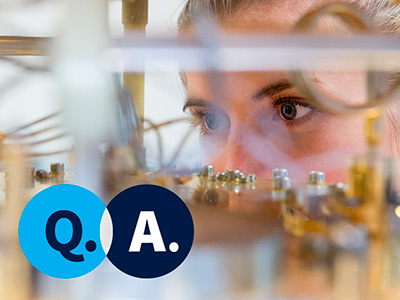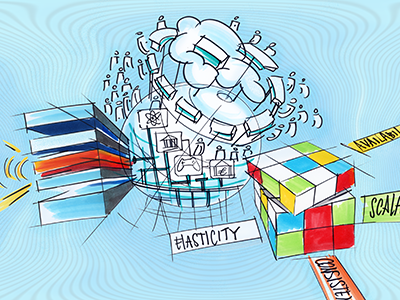4.4.1 Continue your education on Fundamentals of Quantum Information
Course subject(s)
Module 4: Current State of Quantum Computing
In case you missed our introductory course, you can sign up!
 The quantum Internet and quantum computers: how will they change the world?
The quantum Internet and quantum computers: how will they change the world?
This course will provide you with a basic understanding of quantum computing and the quantum internet. Together, we’ll peek into the fascinating world of quantum phenomena, such as qubits, superposition, and entanglement. More information here.
Learn how a quantum computer works. Explore the scientific principles behind it, and the software that operates it.
 The Hardware of a Quantum Computer
The Hardware of a Quantum Computer
The aim of this course is to help you get up to speed with current progress in the transition to a quantum information era. After an initial review of some of the basic concepts and operating principles of the quantum computer and quantum internet (e.g. the ket notation and quantum bits, the qubits), the course will feature an extensive discussion on some of the different ways qubits can be built. Then, we will discuss the four types of qubits that QuTech focuses on: topological qubits, spin qubits, trans qubits and NV center qubits. More information here.
 Architecture, Algorithms, and Protocols of a Quantum Computer and Quantum Internet
Architecture, Algorithms, and Protocols of a Quantum Computer and Quantum Internet
In this course we will demonstrate how a large-scale quantum processor could be built using these qubits. Among the topics that we will discuss are micro-architectures, compilers, and programming languages. The course will also cover some of the basics of quantum error-correction, an essential procedure that allows us to combat errors that arise during computations using delicate qubits. More information here.
You may also be interested in this online course by TU Delft.
 Modern Distributed Systems
Modern Distributed Systems
The course will provide learners with the fundamental understanding (theoretical and practical foundations) of how cloud, edge, and big data processing systems work and how they address common challenges for distributed systems such as performance, resilience, and scalability. More information here.

Fundamentals of Quantum Information by TU Delft OpenCourseWare is licensed under a Creative Commons Attribution-NonCommercial-ShareAlike 4.0 International License.
Based on a work at https://online-learning.tudelft.nl/courses/fundamentals-of-quantum-information/ /



